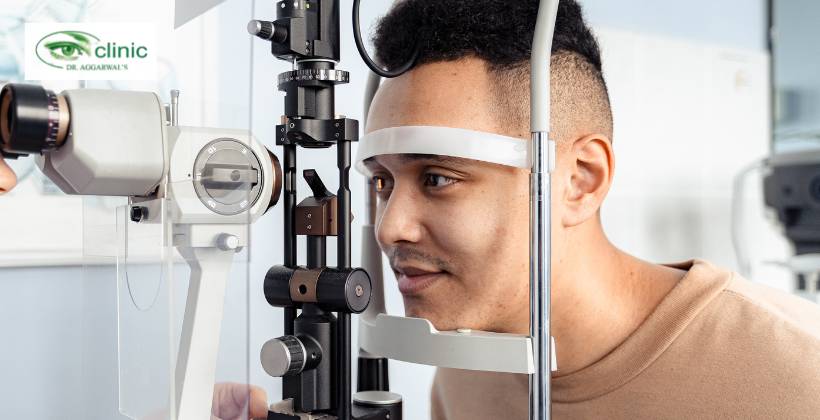Neuro Ophthalmology is also a specific discipline that interfaces neurology and ophthalmology to manage vision issues resulting from the brain, the optic nerve, or the nervous system. Our specialists are trained to deal with the intricate connection between your eyes and your brain at the Eye Centre in Delhi, where we treat the vision problems that arise because of other underlying neurological disorders. It is commonly caused by stroke, injury to the brain, or inflammatory involvement of the optic nerve. Diagnosis is pivotal to successful treatment and overall improved outcomes in the long term, and our staff is concerned about providing the complete care you require.
What is Neuro Ophthalmology?
Neuro Ophthalmology is a branch of Ophthalmology that mostly deals with the diagnosis and treatment of visual problems that occur as a result of an ailment in the neurological system. A neuro ophthalmologist is a specialist who has been trained in both ophthalmology and has done neurological studies as well, and he or she possesses a very unique knowledge of the relations of the brain and nerve diseases to vision. Their treatment spectrum covers a broad scope of issues, including loss of sight and eye movement control, and this approach makes this clinic about your complete eye wellness.
Neuro Ophthalmology Common Conditions Treated
- Optic Neuritis: Optic neuritis is the inflammation of the optic nerve, and it may cause sudden loss of vision and pain during eye movements.
- Double Vision (Diplopia): Double vision may be an indicator of many different conditions since it could be indicative of muscle weakness or nerve damage. The underlying causative factor is diagnosed, and the disorder is treated by neuro-ophthalmologists.
- Visual Field Defects: The damage usually occurs to the visual pathways in the brain, which causes these defects. Visual field testing is done to diagnose the nature and severity of the defect by specialists.
- Eye Movement Disorders: Disorders such as nystagmus (automatic eye movement), cranial nerve, which may trigger the condition of drooping eyelids or misalignment of the eyes, are also managed.
- Vision loss: Stroke may affect the visual process in the brain. The diagnosis and recovery of the vision of the patients require neuro ophthalmology services.
Neuro Ophthalmology Diagnosis
A correct diagnosis leads to good treatment. In our diagnosis, we incorporate:
- Comprehensive eye checks to find out the vision and overall eye health.
- Comprehensive neurological examinations are conducted to examine nerve and brain functioning.
- Imaging defines the Brain and optic nerves through advanced imaging such as MRI and CT.
- The field of vision is examined to describe the region of the vision loss.
- To obtain a closer, distinctive appraisal of the optic nerve and retina, optical coherence tomography (OCT) is used.
Treatment Approaches
The treatment provided is tailored to the individual needs of a patient and based on his or her condition. Practices can be:
- Medications: Prescriptions of steroids to lessen inflammation, antibiotics, and antivirals to abate infection.
- Surgery: Your doctor might have to operate on you to eliminate nerve compression or remove tumors in certain cases.
- Vision Therapy: It can be enhanced in the rehabilitation and/or vision therapy, enhancing the eye movement and visual performance.
- Cooperation: This involves close work between physicians to offer a synergistic and multifaceted treatment program with neurologists and neurosurgeons.

When Do You Need a Neuro-Ophthalmologist?
These are symptoms that should make you see a neuro-ophthalmologist:
- Doubles after pictures (continued eyestrain)
- Unexpected or unaccounted blindness
- sagging eyelids or unbalanced pupils
- The condition of a headache accompanied by immediate changes in eyesight
Why Our Neuro Ophthalmology Services?
The Eye Centre commits itself to delivering care of the highest standard. Our clinic provides a large variety of services, such as complex surgery, and it is patient-oriented. We employ the most advanced technology in the diagnosis of your condition, which ensures precise evaluation, and our specialists strive to devise an individual treatment regimen for your case. We offer you the best possible vision care and treatment for neurological eye disorders.
Frequently asked questions (FAQs)
Q1: What is a neuro-ophthalmologist as compared to an ordinary eye doctor?
Ans: A common oculist is a doctor who specializes in the well-being of the eye. The training of a neuro ophthalmologist enables them to combine both ophthalmology and neurology skills, which helps them diagnose and treat the vision disorder that has some correlations with the brain and the nervous system.
Q2: What is the most frequent disorder that a neuro-ophthalmologist takes care of?
Ans: The common ones are optic neuritis, double vision, and unexplained vision loss. Nevertheless, they also oversee more complicated things, such as the difficulties with vision caused by a stroke or a brain tumor.
Q3: Is the neuro ophthalmology surgical procedure painful?
Ans: Every surgery is carried out with the patient under suitable anesthesia to ensure the patient’s comfort. The medical practitioner will explain how it works and what it involves, including healing and pain treatments after the surgery.
Q4: Is it possible to regain the vision lost because of a neurological condition?
Ans: Vision restoration depends on the disease, its cause, and how early it is discovered. Whereas one must admit the existence of cases where a particular level of vision loss is irreversible due to the intrusion of the disease, early intervention and treatment are still sufficient to avoid the progression of vision health loss further, as well as in some cases to restore a certain level of its functionality.
Conclusion
You should detect and treat neuro ophthalmology disorders early, as it is essential to your vision and the quality of your life. There are several symptoms listed above, which, on the other hand, are quite critical to address. So, in case you observe some of them, it is of paramount importance to visit a specialist. To get a clearer and healthier future, call the Eye Centre and make an appointment with our specialists.


